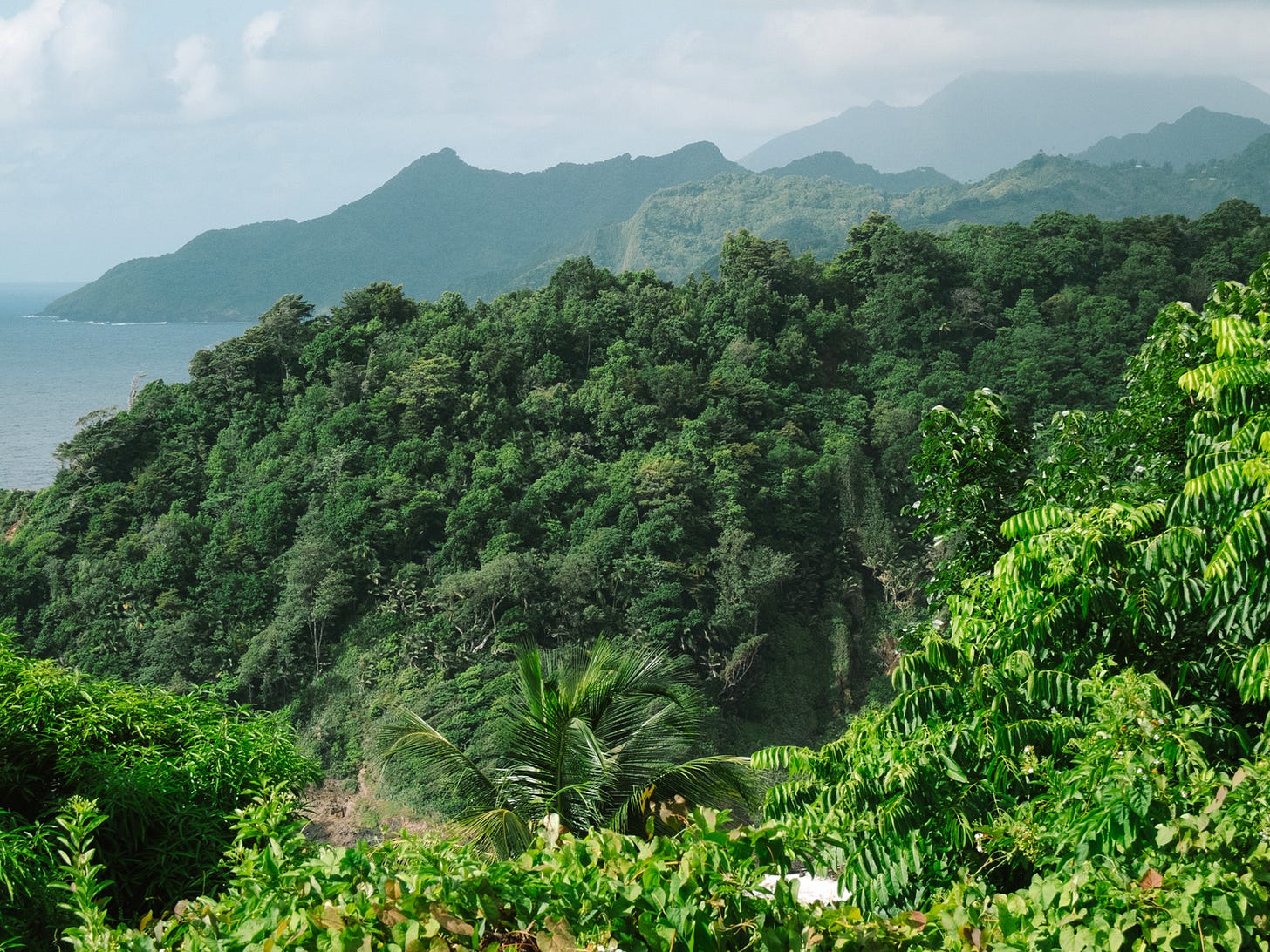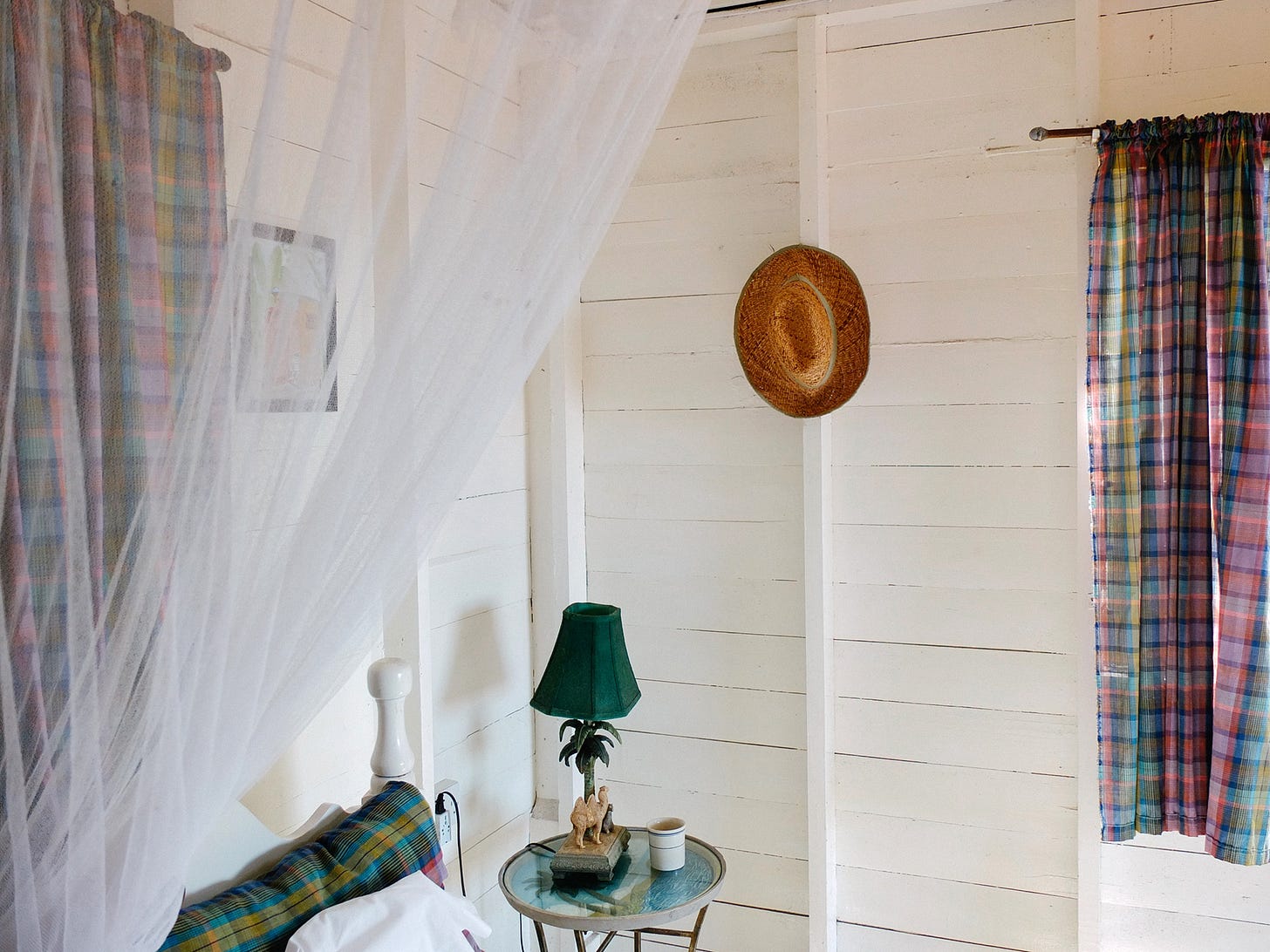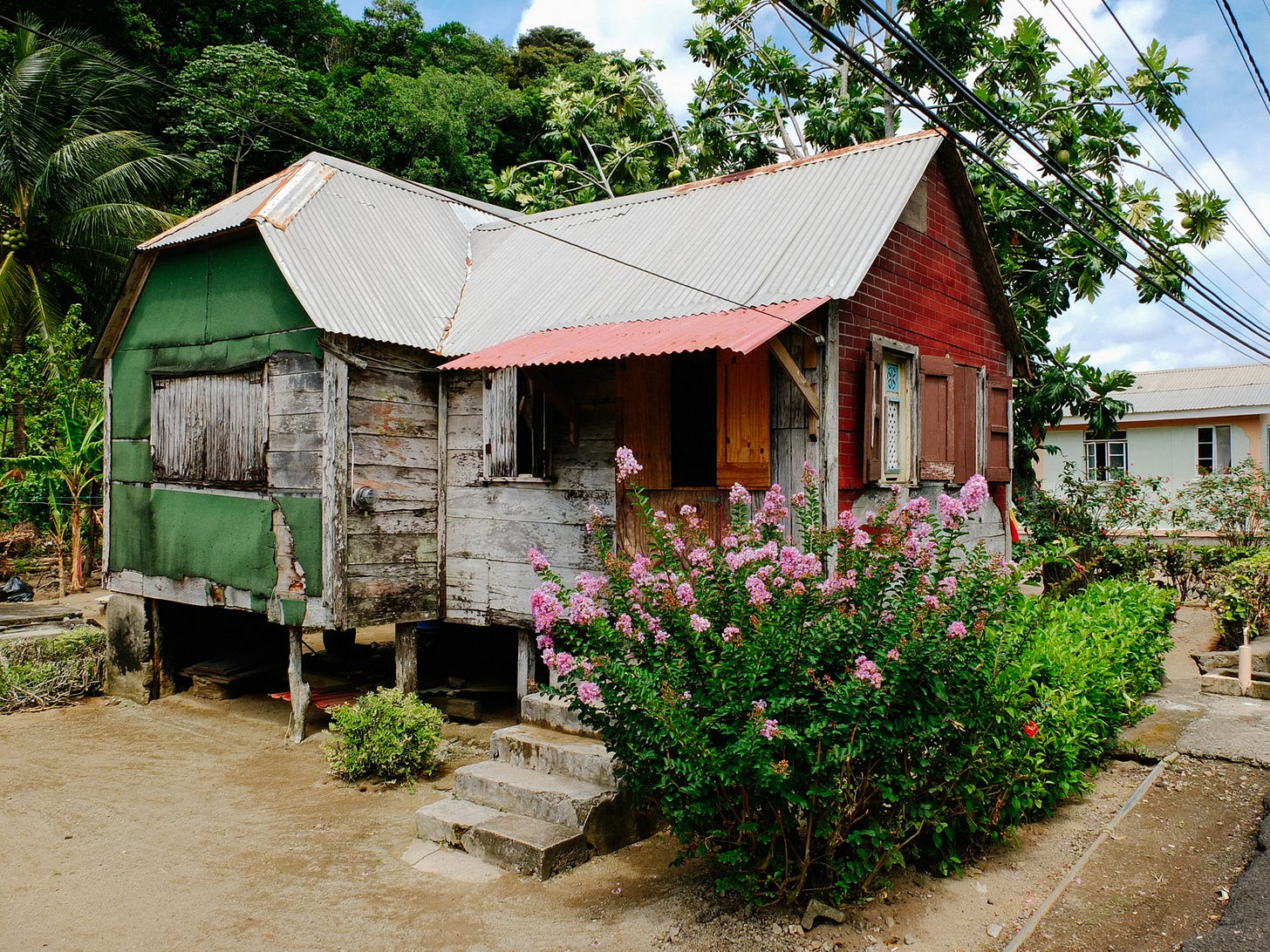In the Caribbean west indies there’s a tiny island country called Dominca (not to be mistaken for the Dominican Republic). Dominica is almost entirely covered by rainforest parks. It’s also known for the sperm whales that swim in its achingly blue waters. The population is a mix of West Indian and indigenous Carib Indians (where “Caribbean” comes from, for those who didn’t know). I first visited this little island when I was on a whirlwind photography assignment for National Geographic (I’ll write an article about that at some point). I loved how far off the beaten track the island felt. The tourism industry was small, and it felt like one of those places where one can have what I think of as an “authentic” travel experience. Meaning, for me, an experience that isn’t shaped entirely by businesses geared towards tourists, but is instead one where you can get a real taste of how the locals live. Dominica is definitely that kind of place, assuming you don’t stay at one of few the gated resorts and marinas interspersed around the island.
I loved Dominica so much that a few years after the Nat Geo assignment my wife and I decided to return on vacation. I photographed over 30 islands on that assignment so the fact that we chose this one to come back to speaks to the initial impression it made on us.
We flew to the capitol city of Roseau (pop 15,000 people), a vibrant and bustling port that is the starting point for ventures around the island. From Roseau we headed to the remote north coast to a small village called Calibishie. The area around Calibishie is known as the most unspoiled coastline on the island. (Not that any of it really looks spoiled.)
After arriving at our small guesthouse we were shown to an open air room on the second floor. To our supreme delight we were afforded a huge balcony that overlooked a small pebble-strewn beach. Beyond the little beach the surf crashed against large sea stacks and a distant reef before calmly lapping the sand just a few feet from the guesthouse. The water was clear, the palms swayed in the wind, and cumulus clouds traced the curved horizon.

Set among the rattan furniture on the balcony were huge stacks of sun-bleached NewYorker magazines (no idea how they got there) and other salty books, their pages curled up in the moist air. There was no glass in the windows of the apartment (or even screens, for that matter) and the bed was enclosed by a beautiful white transparent mosquito net (very important during the long jungle nights). Make no mistake, this was not luxury accommodation. But it certainly wasn’t lacking charm or character. We wanted to experience this part of Dominica close to how the locals would, and not sequester ourselves away in a big gated hotel.
At first the calm was disconcerting. Outside the wind gently rattled the dense palms around the balcony, and occasionally a dog would bark in the distance, but mostly we felt like the last people on earth. I was used to the pace of the city. I battled the urge to find internet and check my email, and anxiety crept in about the projects I was working on back in the office. I seemed to have lost the ability to relax. I couldn’t stand myself. I was confronted with one of the most tranquil and untroubled scenes I had ever witnessed but I couldn’t seem to slow down enough to enjoy it.
That afternoon we took a walk through the small village. Everyone always seemed to be outside. That day the locals seemed to be hustling around preparing for something. We asked some neighbors about it and it turned out there was going to be a celebration of some kind. People were touching up paint on their houses, cleaning up yards, sweeping balconies, burning trash, and generally tidying everything up. It was endearing. We didn’t see any other tourists around.
Over the next week or so we learned to settle down, thankfully. Careers and city life back home began to feel like a distant reality. My wife spent hours upon hours collecting hundreds of beautiful shells that she laid out on the wide balcony to dry in the blinding Caribbean sunlight. (All but a few of the shells were returned to the sea when we left.) I melted into a rickety woven chair in the shade and read random NewYorker articles throughout the hottest part of the afternoons. There really wasn’t much to do, and we relished the boredom. The small celebration, whatever it was, came and went. A few fireworks were set off over the ocean. We still didn’t see any other tourists around. The local men fished in the morning, and then seemed to spend the day lounging. Kids played naked along the waterfront. Occasionally, afternoon storms blew through. Sometimes followed by rainbows arcing across the blue horizon.
Many people don’t realize that it gets dark at about 6pm every day in the Caribbean. So the nights begin early. We learned to go to sleep before ten, which was highly unusual for us. Without TV or decent wifi the days passed by like a slow motion dream. I really can’t emphasize enough how wonderful it was.
When we finally returned to our lives in Washington, D.C., everything felt different. Those few weeks felt like a few years of island time. The pace of life back home was painfully swift and aggressive. In the evenings we’d talk about how, down in the village in Dominica, the kids were probably splashing in the calm water right at that very moment. (And while I sit and write this in the fading twilight the same probably holds true, even after many years.)
As time passed it became obvious that our lifestyle in the city wasn’t sustainable. We’d had a taste of a completely different way of being. It was deliciously simple and wholesome. It’s pretty obvious that mimicking a Caribbean island lifestyle is close to impossible in America, but we knew we’d have to at least slow things down a bit. We ended up staying in the city for a few more years before deciding to move to California and give the west coast a shot. It seemed like a place that held promise. But that’s another story.











Love it!